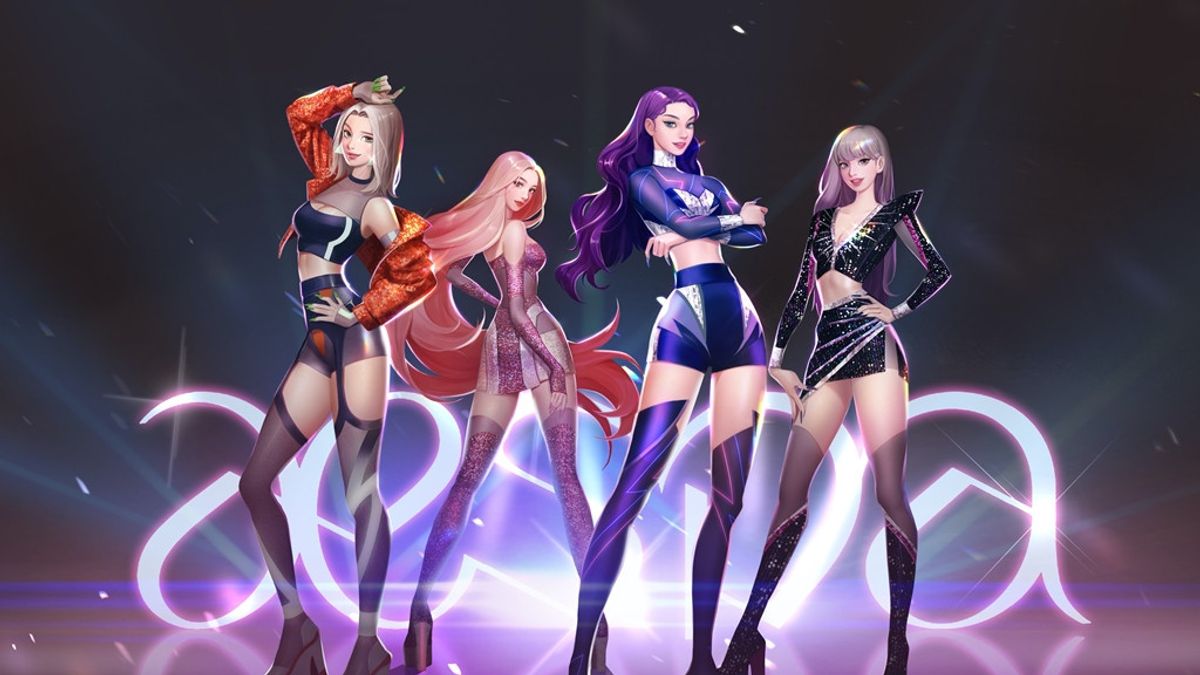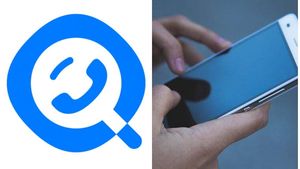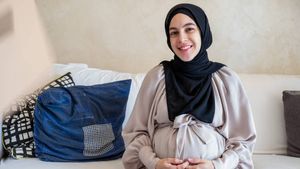JAKARTA - SM Entertainment will be debuting their newest group, aespa, today, Tuesday, November 17, 2020. Aespa has the concept of a mix between members and the virtual version.
Using the concept of AR or Augmented Reality, aespa's virtual characters can sing and interact like real humans. In fact, SM said, aespa was formed specifically for online and offline.
Aespa is not the first group to use a concept like this. Previously there was the Kyoko Date which was launched in 1996 in Japan and was followed by a virtual singer named Adam from Korea in 1998.
Singer Adam has released an album titled Genesis and had promotions on various music stages at that time.
Hatsune Miku and K / DA, Virtual TodayFor millennials today, the figure of Hatsune Miku, an avatar with a career since 2007, is one of the most popular virtual idols. Not only in Japan, Hatsune Miku's popularity flew overseas where she opened a Lady Gaga concert and collaborated with Pharrell Williams.
Quoting Vulture, Tuesday, in 2014, his album sold more than 40 thousand copies with 2.5 million likes on Facebook.
Then there is the virtual K / DA group created by Riot Games, the company that created the League of Legends game in 2018. Their first song, Pop / Stars was watched more than 100 million times within a month of its release.
Initially, this group was formed to promote the game League of Legends and sell skins for K / DA characters. But as fans and popularity grew, K / DA continued to release songs like K-pop groups.
In Indonesia, a similar technology was presented by an internet star named Thalasya. Once viral in 2018, Thalasya appeared on Instagram and uploaded his daily life like a human. In fact, he had starred in a local snack ad.
AR Idols, which have been around since 1990, have proven that technology has always been evolving with the times. The music industry is also feeling technological changes with the presence of virtual idols that have started to appear in today's era.
The virtual character that is ideal combined with a good promotional strategy will generate multiplying fan interest. For example, there is a K / DA which continues to develop, starting with the promotion section into a project that is being worked on seriously and continues. K / DA has also teamed up with Louis Vuitton's clothing line for endorsements in the form of virtual clothing.
Perfect IdolAugmented Reality Idols or AR Idols create the imagination of perfect idols from their fashionable clothes to graphic faces that can be changed any time. The company also attaches great importance to the quality of the vocals the characters behind it perform.
K / DA, the group from League of Legends has a voice filled by Madison Beer, Jaira Burns, Miyeon and Soyeon from (G) I-DLE.
In terms of production, agencies or production companies don't need to be confused about forming a group because virtual groups don't go through the training period like most idols.
In addition, the existence of virtual groups such as aespa or K / DA can attract fans from a wider sector, including manga or animation fans.
This merger has been carried out by the game company Netmarble, which invited BTS to join the BTS Universe Story game. The presence of BTS in the form of AR can attract fans to play games and vice versa.
Can the presence of AR Idols replace real humans? Maybe not in the near future. But sooner or later, concepts like aespa will be found in the next idols. SM Entertainment created aespa in two versions and both versions could benefit from both virtual fans and K-pop fans.
The English, Chinese, Japanese, Arabic, and French versions are automatically generated by the AI. So there may still be inaccuracies in translating, please always see Indonesian as our main language. (system supported by DigitalSiber.id)









